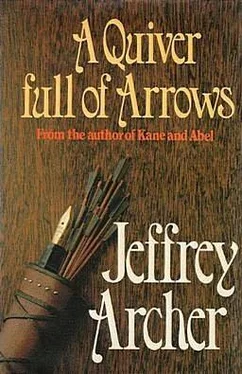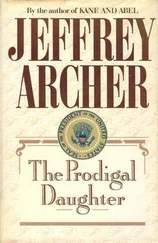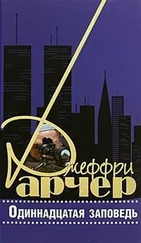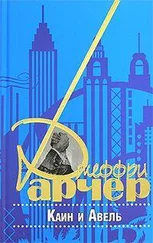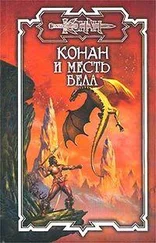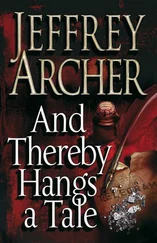The Oxford openers took the crease at ten past five; fifty minutes to see through before close of play on the first day. The captain sat padded up on the pavilion balcony, waiting to be called upon only if a wicket fell. His instructions had been clear: No heroics; bat out the forty minutes so that Oxford could start afresh the next morning with all ten wickets intact. With only one over left before the close of play, the young freshman opener had his middle stump removed by Bill Potter, the Cambridge fast bowler. Oxford were eleven for one. The captain came to the crease with only four balls left to face before the clock reached six. He took his usual guard, middle and leg, and prepared himself to face the fastest man in the Cambridge side. Potter’s first delivery came rocketing down and was just short of a length, moving away outside the off stump. The ball nicked the edge of the bat — or was it pad? — and carried to first slip, who dived to his right and took the catch low down. Eleven Cambridge men screamed “Howzat”. Was the captain going to be out — for a duck? Without waiting for the umpire’s decision he turned and walked back to the pavilion, allowing no expression to appear on his face though he continually hit the side of his pad with his bat. As he climbed the steps he saw his father, sitting on his own in the members’ enclosure. He walked on through the Long Room, to cries of “Bad luck, old fellow” from men holding slopping pints of beer, and “Better luck in the second innings” from large-bellied old Blues.
The next day Oxford kept their heads down and put together a total of 181 runs, leaving themselves only a twenty-seven run deficit. When Cambridge batted for a second time, they pressed home their slight advantage and the captain’s bowling figures ended up as eleven overs, no maidens, no wickets, forty-two runs. He took his team off the field at the end of play on the second day with Cambridge standing at 167 for seven, Robin Oakley the Cambridge captain having notched up a respectable sixty-three not out, and looking well set for a century.
On the morning of the third day, the Oxford quickies removed the last three Cambridge wickets for nineteen runs in forty minutes and Robin Oakley ran out of partners, and left the field with seventy-nine not out. The Oxford captain was the first to commiserate with him. “At least you notched a hundred last year,” he added.
“True,” replied Oakley, “so perhaps it’s your turn this year. But not if I’ve got anything to do with it!”
The Oxford captain smiled at the thought of scoring a century when his team only needed 214 runs to win the match.
The two Oxford opening batsmen began their innings just before midday and remained together until the last over before lunch, when the freshman was once again clean bowled by Cambridge’s ace fast bowler, Bill Potter. The captain sat on the balcony nervously, padded up and ready. He looked down on the bald head of his father, who was chatting to a former captain of England. Both men had scored centuries in the Varsity match. The captain pulled on his gloves and walked slowly down the pavilion steps, trying to look casual; he had never felt more nervous in his life. As he passed his father, the older man turned his sunburned face toward his only child and smiled. The crowd warmly applauded the captain all the way to the crease. He took guard, middle and leg again, and prepared to face the attack. The eager Potter who had despatched the captain so brusquely in the first innings came thundering down toward him hoping to be the cause of a pair. He delivered a magnificent first ball that swung into his legs and beat the captain all ends up, hitting him with a thud on the front pad.
“Howzat?” screamed Potter and the entire Cambridge side as they leaped in the air.
The captain looked up apprehensively at the umpire, who took his hands out of his pockets and moved a pebble from one palm to the other to remind him that another ball had been bowled. But he affected no interest in the appeal. A sigh of relief went up from the members in the pavilion. The captain managed to see through the rest of the over and returned to lunch nought not out, with his side twenty-four for one.
After lunch Potter returned to the attack. He rubbed the leather ball on his red-stained flannels and hurled himself forward, looking even fiercer than he had at the start of play. He released his missile with every ounce of venom he possessed, but in so doing he tried a little too hard, and the delivery was badly short. The captain leaned back and hooked the ball to the Tavern boundary for four, and from that moment he never looked as if anyone would pry him from the crease. He reached his fifty in seventy-one minutes, and at ten past four the Oxford team came into tea with the score at 171 for five and the skipper on eighty-two not out. The young man did not look at his father as he climbed the steps of the pavilion. He needed another eighteen runs before he could do that, and by then his team would be safe. He ate and drank nothing at tea, and spoke to no one.
After twenty minutes a bell rang, and the eleven Cambridge men returned to the field. A minute later the captain and his partner walked back out to the crease, their open white shirts flapping in the breeze. Two hours left for the century and victory. The captain’s partner only lasted another five balls, and the captain himself seemed to have lost that natural flow he had possessed before tea, struggling into the nineties with ones and twos. The light was getting bad, and it took him a full thirty minutes to reach ninety-nine, by which time he had lost another partner: 194 for seven. He remained on ninety-nine for twelve minutes, when Robin Oakley, the Cambridge captain, took the new ball and brought his ace speed man back into the attack.
Then there occurred one of the most amazing incidents I have ever witnessed in a cricket match. Robin Oakley set an attacking field for the new ball — three slips, a gully, cover point, mid off, mid on, mid wicket, and a short square leg, a truly vicious circle. He then tossed the ball to Potter, who knew this would be his last chance to capture the Oxford captain’s wicket and save the match; once he had scored the century he would surely knock off the rest of the runs in a matter of minutes. The sky was becoming bleak as a bank of dark clouds passed over the ground, but this was no time to leave the field for bad light. Potter rubbed the new ball once more on his white trousers and thundered up to hurl a delivery that the captain jabbed at and missed. One or two fielders raised their hands without appealing. Potter returned to his mark, shining the ball with even more relish and left a red blood-like stain down the side of his thigh. The second ball, a yorker, beat the captain completely and must have missed the off stump by about an inch; there was a general sigh around the ground. The third ball hit the captain on the middle of the pad, and the eleven Cambridge men threw their arms in the air and screamed for leg before wicket, but the umpire was not moved. The captain jabbed at the fourth ball, and it carried tentatively to mid on, where Robin Oakley had placed himself a mere twenty yards in front of the bat, watching his adversary in disbelief as he set off for a run he could never hope to complete. His batting partner remained firmly in his crease, incredulous: One didn’t run when the ball was hit to mid on unless it was the last delivery of the match.
The captain of Oxford, now stranded fifteen yards from safety, turned and looked at the captain of Cambridge, who held the ball in his hand. Robin Oakley was about to toss the ball to the wicket keeper, who in turn was waiting to remove the bails and send the Oxford captain back to the pavilion, run out for 99, but Oakley hesitated and for several seconds the two gladiators stared at each other, and then the Cambridge captain placed the ball in his pocket. The Oxford captain walked slowly back to his crease while the crowd remained silent in disbelief. Robin Oakley tossed the ball to Potter, who thundered down to deliver the fifth ball, which was short, and the Oxford captain effortlessly placed it through the covers for four runs. The crowd rose as one, and old friends in the pavilion thumped the father’s back.
Читать дальше
